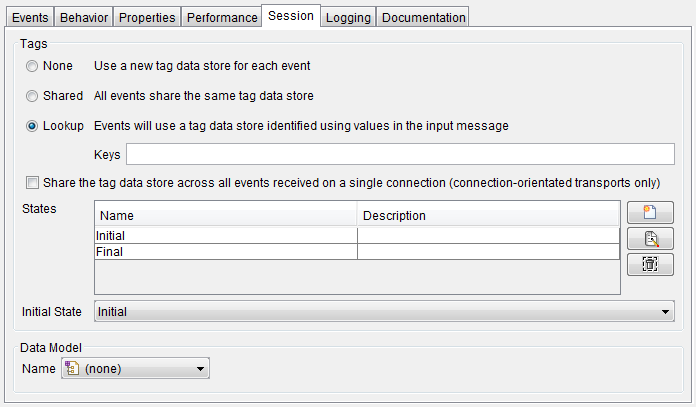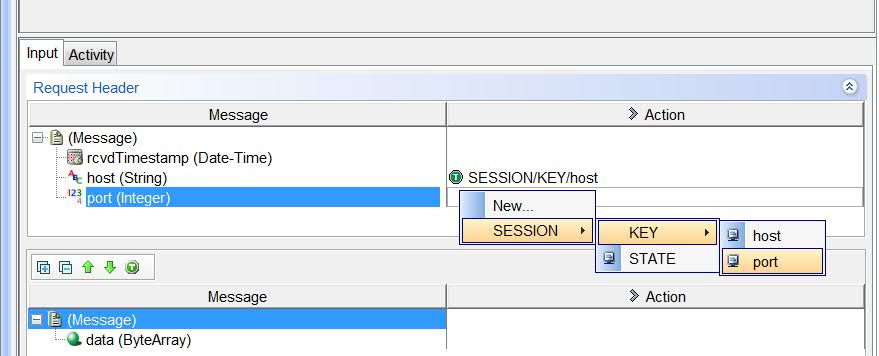The Session tab
With the Session tab, you can configure the sharing of the tag data store between workers (instances of the stub), so that messages can be processed based on information that was captured from previously processed messages.

For an overview of reply sequencing that uses sessions, see Reply-sequenced stubs.
Tags
- None
- No data is shared. If the stub uses reply sequencing, selecting this option has the following effects:
- Reply sequencing is disabled
- All references to the SESSION/GROUPn/ReplyId tag are removed
- Guards are changed for the events
- Any functions that were created for the events are removed
- Shared
- All events in the stub share the same tag data store.
- Lookup
- The stub worker (stub instance) identifies the tag data store to use based on values that were
stored from the input message. This process enables data that was previously put in a store to be
located. For example, if the session state is identified by its source host and port, you can
specify
host;port(separated by semicolons) in the Keys field. This process creates tags that are named SESSION/KEY/host and SESSION/KEY/port in the tag data store. On the Input page, store incoming values from the input message by specifying these tags, as shown in the following figure.
If you select the Share the tag data store across all events received on a single connection... option, all events that are received by the stub on the connection for a connection-oriented transport (such as TCP) share the same session. This statement is true regardless of any of the other options for sharing tag data stores that you might specify. The session is uniquely associated with the connection itself. The tag data store is shared across all events in the session. This option is not available for connectionless transports such as HTTP or WebSphere® MQ.
States
- Creating guard conditions
- State matching

You can define as many states as you need in the States table, and then select one of them as the Initial State. The current state of the session is stored in the SESSION/STATE tag and can be overwritten, as with any other mutable tag.
Data models
If you want to associate a data model with the stub, select one from the list. For more information about data models, see The Data Model view.